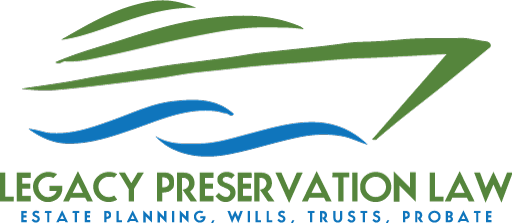1. Adding your child or someone else to your bank account (Creating a Joint Account). While this may sound like a good idea so that someone can pay your bills if you become incapacitated, the reality is that if you add someone to your account you have not only made a gift to them of your money but you have also made your money available to their creditors. If your child’s creditor searches bank records and finds your child’s name on your account, they can garnish your account and take your money.
Consider this: Setting up a revocable trust can minimize the delay in your agents accessing your funds to pay bills, when properly funded.
2. Adding someone else’s name on the deed to your house. Similar to adding a child to your bank account, adding your child (or anyone else) on the deed to your house exposes your home to their creditors. Also, if you think adding one child to your deed means they will share the house, or proceeds from the sale of your house, with their other siblings, you may want to think again. If one child “inherits” from you because you have added them to your accounts or deed on your home, they are under no legal obligation to share that with anyone. Also, if they do share, they will most likely be required to file a gift tax return.
Consider this: If you want your home to go to someone and you want to avoid probate, consider using a beneficiary deed.
3. Thinking that by having a Will your estate will avoid probate. Nothing could be further from the truth. Your Will is merely your instructions about where your assets should go upon your death. However, no one can transfer ownership or title to your assets without legal authority. If you own assets in your own name, at death your estate may be required to go through the probate process. Probate is the court procedure used to determine the validity of your Will, appoint your executor (called a Personal Representative) determine the ownership of your assets and authorize the payment of your creditors and distribution of remaining assets to your heirs or devisees.
Consider this: If you own assets without beneficiary designations, then most likely your estate will require probate after your death.
Review all of your beneficiary designations every 5 years when you review your estate planning, and update when necessary.
4. Thinking that the state will get all of your assets if you don’t have a Will. This is also not true. The state doesn’t want your assets (unless you owe them money of course). The state is interested in an orderly settlement of your estate. That’s why they have determined who your assets would go to if you died without a Will. That process is called intestate succession. Essentially, the state has decided your assets should go to your closest living relatives.
Consider this: If you don’t like the state’s plan, the only way to avoid it is to create a plan of your own. It’s your plan or the state’s plan.
5. Not keeping up to date on your beneficiary designations. Occasionally it will be necessary to change beneficiary designations on life insurance, bank accounts etc. This is particularly true after a life-changing event such as a divorce or the death of a loved one. The beneficiary designation on your account controls the distribution of that asset. Your Will or Living Trust has no effect on assets that have a beneficiary designation. If you have divorced and your spouse was the beneficiary on your life insurance, even if your re-marry, without changing the beneficiary, your life insurance will pay to your former spouse as your designated beneficiary.
Consider this: When you make a change to a beneficiary, you should keep a copy of the change form so that your estate has a record of it.
Subscribe to our blog for upcoming Common Mistakes posts. If you have questions about updating your planning please call our office to schedule an appointment.
